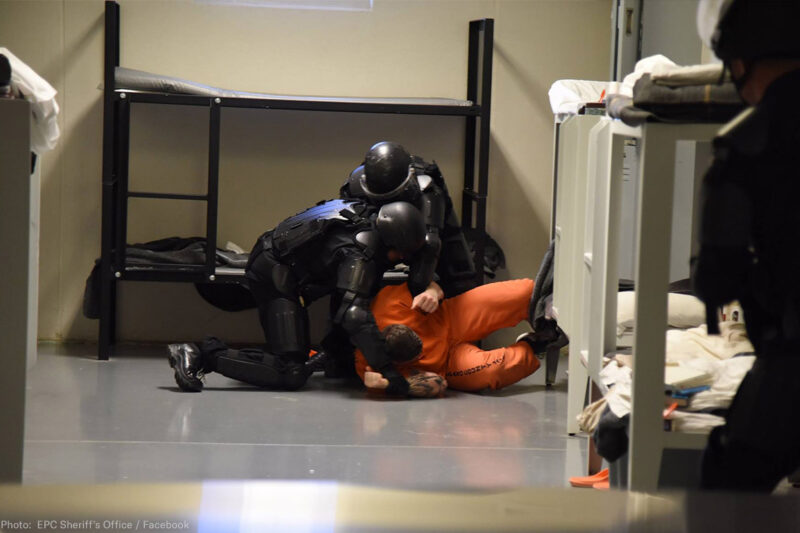El Paso County Deputies Started a Fight Club to Reward Use of Force Against Prisoners


Use of violent force is never something to celebrate. Any time law enforcement officers legitimately use force or violence against people in the communities that they serve, it is at best an unfortunate part of the job that should be kept to the minimum amount necessary to control a situation.
Yet in the El Paso County Jail in Colorado, Sheriff’s Deputy Sandra Rincon was celebrated with a tiara, a “princess” plate, and a cake with the number “50” on top. The number, however, wasn’t her age. It referred to the number of times she had used force against prisoners, ranging from handcuffing to punching and kicking. She was the winner of what one of the ” crowning whoever used force most often as the champion.
The “fight club” competition was uncovered in the course of a lawsuit filed by civil rights attorney Darold Killmer, which charged sheriff’s deputies with using excessive force against his client, Philippa McCully. The deputies, according to McCully, knocked her legs out from under her and shoved her to the floor, fracturing her knee, tearing her ACL, and bruising her badly. After the “fight club” competition was revealed, the county settled McCully’s case for $675,000.
The uncovering of the “fight club” did lead to an investigation, but that investigation of being genuine and robust. The investigation largely minimized the culture of violence that led to the “fight club” coming to be in the first place. There were written reprimands, but no demotions, no transfers, or dock of pay for anyone involved, and there was no other disciplinary action along the lines of limited suspension. The competition was dismissed as little more than “bad judgment,” and the county denied that it resulted in increased use of force, even though incidents of use of force nearly doubled during the first two years of the competition.
Use of force is no joking matter, especially in a time when community’s trust in law enforcement has been eroded by repeated incidents of excessive and even lethal force against unarmed community residents, especially people of color, usually with little or no accountability for officers involved. Excessive force is always wrong, whether the perpetrators are police officers on the streets or corrections officers in prisons and jails.
The county’s dismissal of the “fight club” as simply bad judgment only exacerbates the distrust between the community and law enforcement. Indeed, it may further erode it. Rather than essentially turning a blind eye, the county should use this as an opportunity to revisit its use of force policy, double down on investments in training (not ), and commit to greater accountability on the part of the sheriff’s department.

